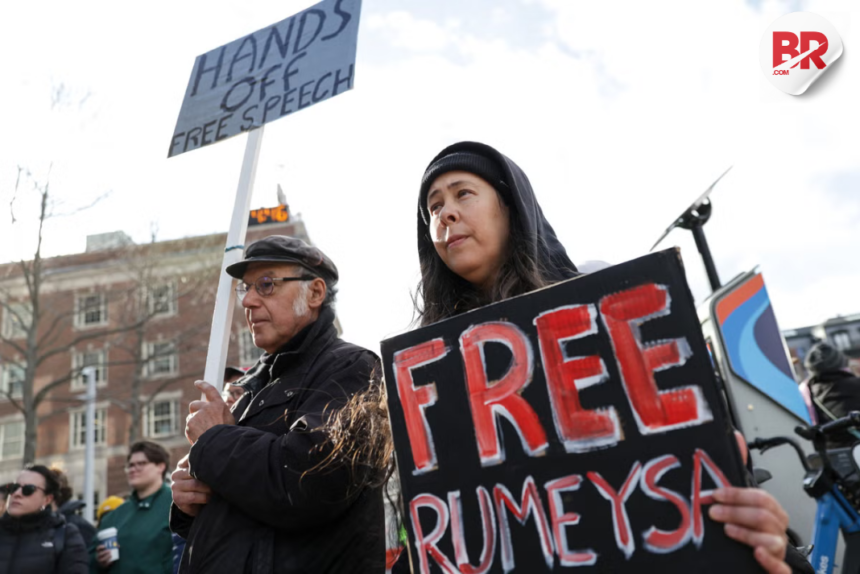
In a world where political drama often spills into academia, the latest showdown between the Trump administration and Harvard University has sparked more than just headlines. Former US President Barack Obama has weighed in, calling the move a “ham-handed attempt to stifle academic freedom.” But what exactly happened, and why is it causing such a stir? Let’s break it down.
The $2.3 Billion Freeze
The Trump administration froze $2.3 billion in grants and contracts for Harvard University, a bold step triggered by Harvard’s refusal to comply with new federal mandates.

These demands included dismantling diversity, equity, and inclusion (DEI) offices, changing hiring and admissions policies, and even assisting in immigration screenings for international students. Sounds like a tall order, right?
Harvard, however, wasn’t backing down. The university saw these directives as an attack on its independence and academic freedom. In fact, President Alan Garber made it clear: “No government—regardless of which party is in power—should dictate what private universities can teach, whom they can admit and hire, and which areas of study and inquiry they can pursue.”
Also Read: “No Grants Without Obedience”: Trump Blocks $2.2B to Harvard University in Campus Crackdown
Obama’s Take on the Situation
Barack Obama was quick to defend Harvard, calling the freeze a poor attempt to suppress intellectual inquiry. Speaking out on X (formerly Twitter), Obama praised Harvard for rejecting what he called an unlawful move.
His statement? “Harvard has set an example for other higher-ed institutions—rejecting an unlawful and ham-handed attempt to stifle academic freedom, while ensuring an environment of intellectual inquiry, rigorous debate, and mutual respect.”
Obama’s message was clear: academic freedom should not be held hostage to political agendas. He hoped other universities would follow Harvard’s lead and stand firm against such federal overreach.
The Federal Ultimatum
In an April 11 letter, the federal government accused Harvard of violating civil rights laws and demanded sweeping reforms by August 2025. The government argued that Harvard’s refusal to comply with the directives was an ideological bias, failing to meet the conditions necessary to justify federal funding. The ultimatum included overhauling the university’s policies, especially around diversity, equity, and inclusion, and making changes to its admissions process.
But Harvard wasn’t having it. The university’s stance was simple: it will not let the government dictate its curriculum, hiring practices, or research priorities. A bold move, especially considering the size of the funding freeze.
Harvard has set an example for other higher-ed institutions – rejecting an unlawful and ham-handed attempt to stifle academic freedom, while taking concrete steps to make sure all students at Harvard can benefit from an environment of intellectual inquiry, rigorous debate and… https://t.co/gAu9UUqgjF
— Barack Obama (@BarackObama) April 15, 2025
Campus Tensions and Protests
This clash also comes amid growing tensions on campuses nationwide. The recent pro-Palestinian protests over Israel’s military actions in Gaza have fueled a volatile environment.
The Department of Education is investigating over 60 universities over anti-Semitic incidents, and Republican leaders (including Trump) have accused student groups of aligning with Hamas. In contrast, Columbia University chose to comply with the federal mandates, forfeiting $400 million in grants. This decision, however, led to increased immigration enforcement, including deportation proceedings against pro-Palestinian activists.
The Political Divide
The reactions to this funding freeze have been predictably divided. Some, like Republican Rep. Elise Stefanik, supported the freeze, accusing elite universities of nurturing a “troubling entitlement mindset.”
On the other hand, Harvard, despite its substantial surplus and impressive $6.5 billion revenue, stands firm in its belief that federal funding should not dictate the academic values of an institution.
So, what’s the takeaway? In the end, this battle is about more than just money—it’s about the very essence of academic freedom. Harvard University’s refusal to bow down to federal pressure serves as a reminder that, no matter how powerful the forces pushing from outside, universities must remain independent, standing as bastions of free thought and intellectual debate.
Also Read : Columbia University Yields to Trump, Wins Back $400M Amid Antisemitism Scandal












